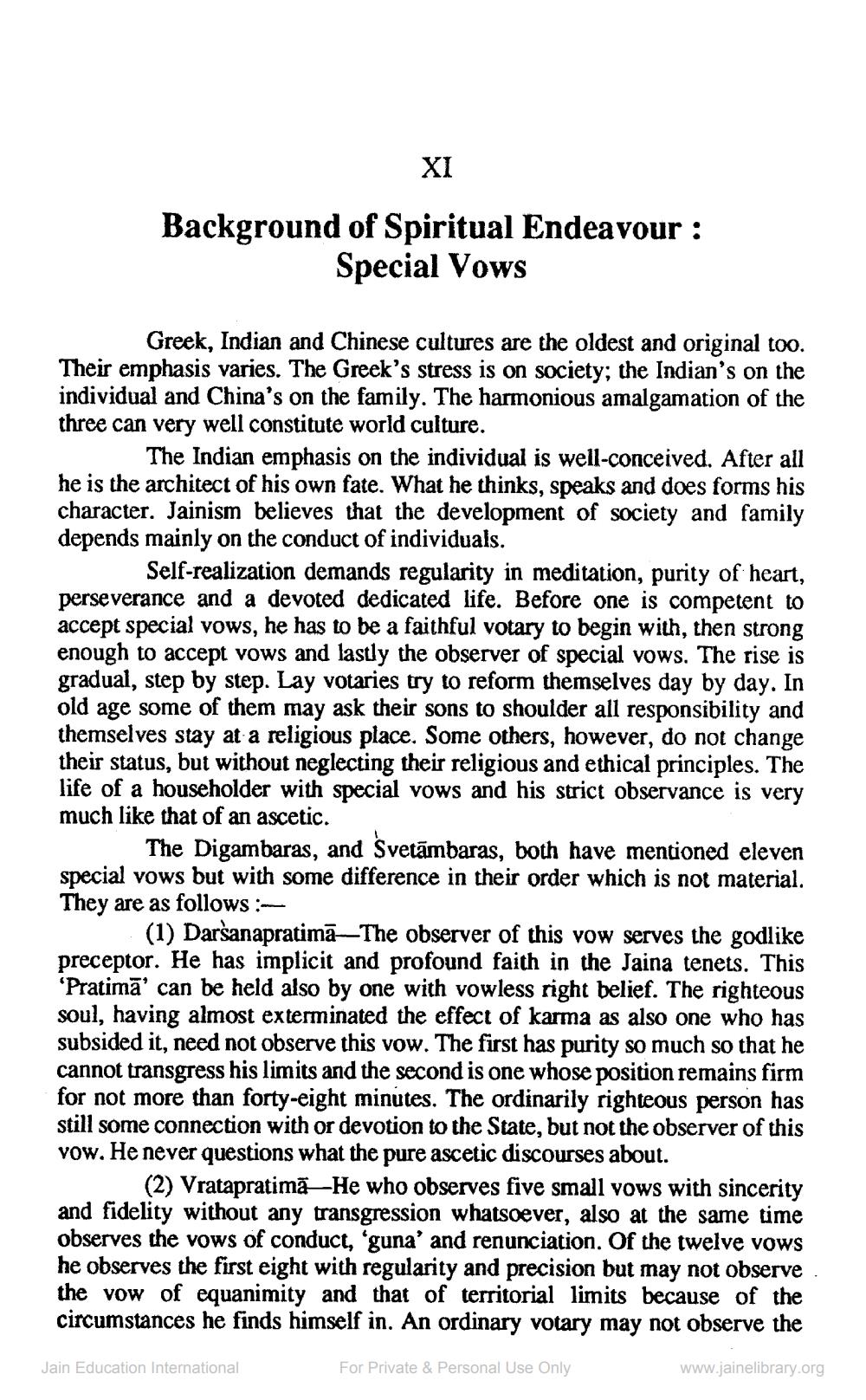________________
XI
Background of Spiritual Endeavour : Special Vows
Greek, Indian and Chinese cultures are the oldest and original too. Their emphasis varies. The Greek's stress is on society; the Indian's on the individual and China's on the family. The harmonious amalgamation of the three can very well constitute world culture.
The Indian emphasis on the individual is well-conceived. After all he is the architect of his own fate. What he thinks, speaks and does forms his character. Jainism believes that the development of society and family depends mainly on the conduct of individuals.
Self-realization demands regularity in meditation, purity of heart, perseverance and a devoted dedicated life. Before one is competent to accept special vows, he has to be a faithful votary to begin with, then strong enough to accept vows and lastly the observer of special vows. The rise is gradual, step by step. Lay votaries try to reform themselves day by day. In old age some of them may ask their sons to shoulder all responsibility and themselves stay at a religious place. Some others, however, do not change their status, but without neglecting their religious and ethical principles. The life of a householder with special vows and his strict observance is very much like that of an ascetic.
The Digambaras, and Svetambaras, both have mentioned eleven special vows but with some difference in their order which is not material. They are as follows:
(1) Darsanapratima-The observer of this vow serves the godlike preceptor. He has implicit and profound faith in the Jaina tenets. This 'Pratima' can be held also by one with vowless right belief. The righteous soul, having almost exterminated the effect of karma as also one who has subsided it, need not observe this vow. The first has purity so much so that he cannot transgress his limits and the second is one whose position remains firm for not more than forty-eight minutes. The ordinarily righteous person has still some connection with or devotion to the State, but not the observer of this vow. He never questions what the pure ascetic discourses about.
(2) Vratapratima-He who observes five small vows with sincerity and fidelity without any transgression whatsoever, also at the same time observes the vows of conduct, 'guna' and renunciation. Of the twelve vows he observes the first eight with regularity and precision but may not observe the vow of equanimity and that of territorial limits because of the circumstances he finds himself in. An ordinary votary may not observe the
For Private & Personal Use Only
www.jainelibrary.org
Jain Education International




